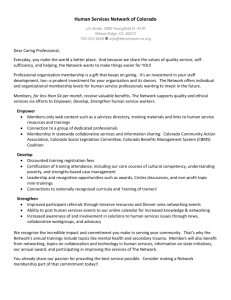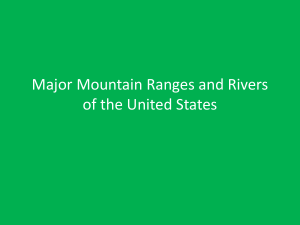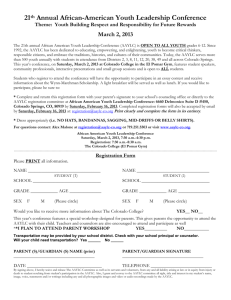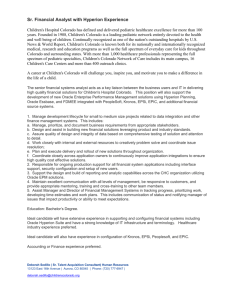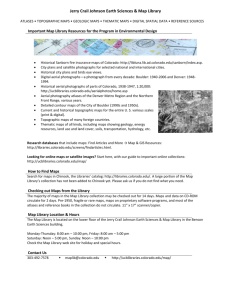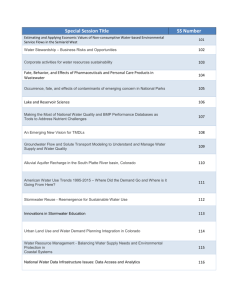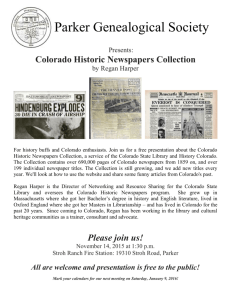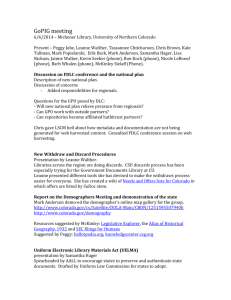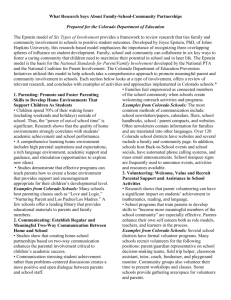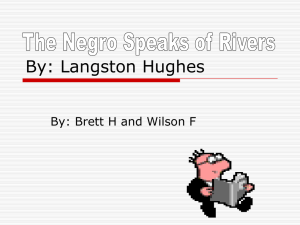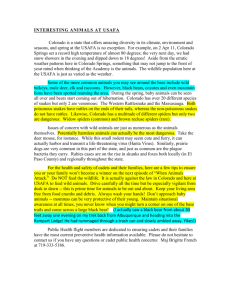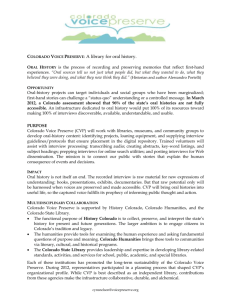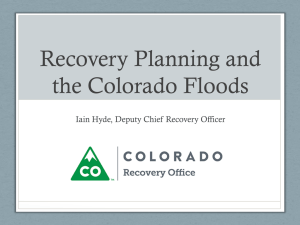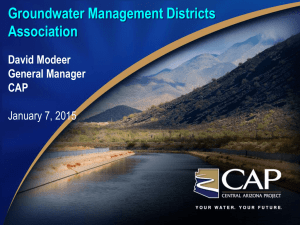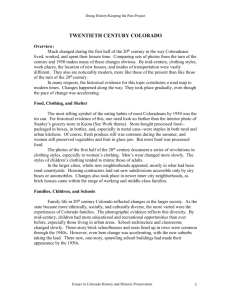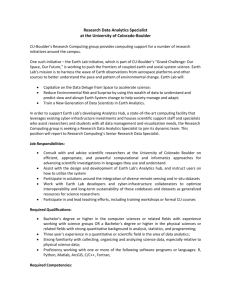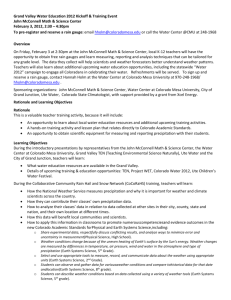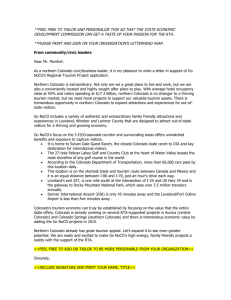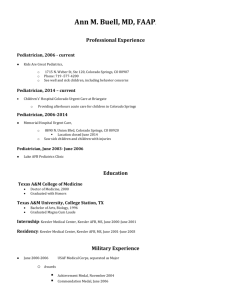File
advertisement
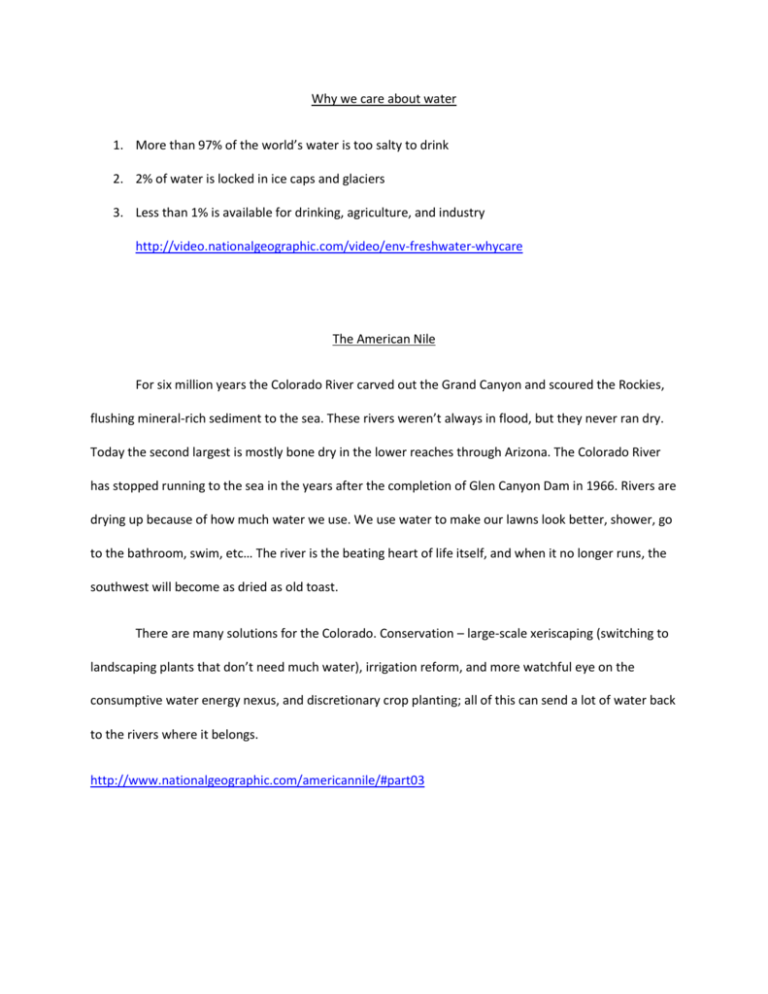
Why we care about water 1. More than 97% of the world’s water is too salty to drink 2. 2% of water is locked in ice caps and glaciers 3. Less than 1% is available for drinking, agriculture, and industry http://video.nationalgeographic.com/video/env-freshwater-whycare The American Nile For six million years the Colorado River carved out the Grand Canyon and scoured the Rockies, flushing mineral-rich sediment to the sea. These rivers weren’t always in flood, but they never ran dry. Today the second largest is mostly bone dry in the lower reaches through Arizona. The Colorado River has stopped running to the sea in the years after the completion of Glen Canyon Dam in 1966. Rivers are drying up because of how much water we use. We use water to make our lawns look better, shower, go to the bathroom, swim, etc… The river is the beating heart of life itself, and when it no longer runs, the southwest will become as dried as old toast. There are many solutions for the Colorado. Conservation – large-scale xeriscaping (switching to landscaping plants that don’t need much water), irrigation reform, and more watchful eye on the consumptive water energy nexus, and discretionary crop planting; all of this can send a lot of water back to the rivers where it belongs. http://www.nationalgeographic.com/americannile/#part03 National Geographic Freshwater Page – What the West’s Ancient Droughts Say about Its Future A millennium ago Native Americans waited all winter for rains that never came. Then the marshes of San Francisco Bay turned from cattails to salt grass. Fishing declined and the Native Americans could no longer rely on the bounty of the bay. Most scientists say that the past century has been unusually moist and warn that California is now vulnerable to a drought that is measured not in years, but decades, perhaps even centuries. Ancient clues in the landscape show this is not the first time the American West has been severely parched, and it’s unlikely to be the last. This winter is on track to be California’s driest since it became a state in 1850, with reservoirs at record-low levels. There are clues from ancient trees. Scientists are piecing together seemingly random evidence about ancient climates, deciphering clues about prehistoric droughts in sediments, tree rings, species distribution, and other natural evidence. It is time to begin facing that future now, scientists say, by reducing and improving the efficiency of water use. Increased emissions of greenhouse gases will create a global one-way trend toward higher temperatures – making a dry landscape even drier. http://news.nationalgeographic.com/news/2014/02/140214-drought-california-prehistory-scienceclimate-san-francisco-2/ Colorado River http://commons.wikimedia.org/wiki/File:Colorado_watershed.png http://en.wikipedia.org/wiki/Colorado_River http://www.desertusa.com/colorado/intro/du_introcr.html Colorado River before and after http://pubs.usgs.gov/fs/2008/3011/ “Researchers at the University of California, Irvine, and NASA analyzed data from a satellite that measures underground water reserves to calculate that the Colorado River Basin has lost 65 cubic kilometers—that’s 17.3 trillion gallons—of water between December 2004 and November 2013. That represents twice the capacity of the United States’ largest reservoir, Lake Mead in Nevada. Most worrying, 75 percent of the loss came from groundwater supplies.” http://www.takepart.com/article/2014/07/24/drought-apocalypse-will-be-here-sooncolorado-river-basin-dries This means that we are running out of the main freshwater source that we use in the U.S. and we will have to stop using all the water or else the entire river will run dry. This also affects any of the animals around the river and in the river. The animals will not be able to drink from the river and the fish that swim in it will die off when the river gets too low. We can fix the issue of the rivers running dry by using less water in our lives. Some people take two or more showers a day, we fill pools in the summer constantly, and Americans drink more water than any other country. We can cut down on our water use and hopefully that makes the rivers rise.

